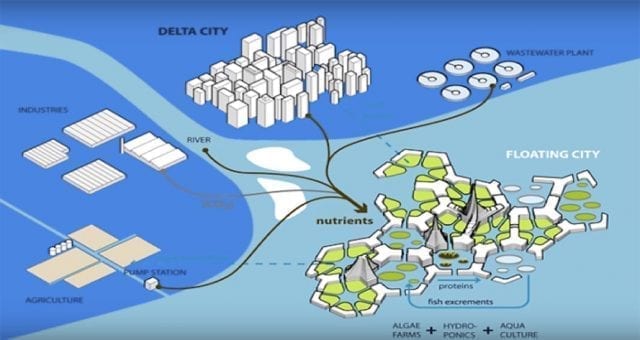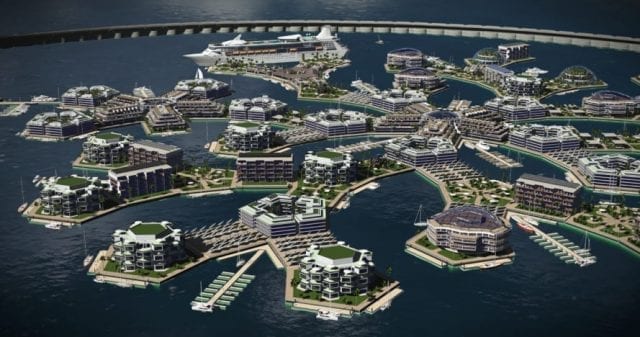In an attempt to build the first floating city on its waters, the French Polynesian Government has signed a memorandum of understanding with a company from San Francisco for the construction of a floating city in the country’s waters by 2019.

The idea behind the project is developed by the Seasteading Institute, an American company which had been looking for a Pacific state to build a pilot floating community for some time. This is with the goal of installing and maintaining permanent floating communities on international waters.
See Also: Top Predictions of Impossible Technology That Failed
The executive director of the institute, Randolph Hencken, told Pacific Beat that finding a host nation was a significant milestone.
If the first floating city on the French Polynesian waters becomes feasible, permanent communities might be set up much farther, away from territorial waters. Inside these Waterworlds, people can do their work without having to worry about the government having a hand in any of it.

It was around 2008 that the idea of the Seasteading’s floating islands was first conjured, and it received some support from different investors including Peter Thiel, a Facebook billionaire.
Based on the agreement signed between the French Polynesian Government and the company, there are studies which are supposed to gauge the economic and environmental impact of the floating community. There will also be a legal investigation whose role is to figure out how the community will have a special governing framework, considering key to the success of the project.
If the floating city is ever built, Hencken says it will start out as a small but self-sufficient rig. Residents will be able to find food on the floating city as well as any other basic facility. If they require other services or produce, they can hop on a speed boat and quickly reach the French Polynesian islands. Housing platforms are designed to be modular which makes adding new members easy. Also, if a member is tired of living on a floating pad, he can always unhook his platform and sail away. Each platform costs $15 million, according to Hencken.













